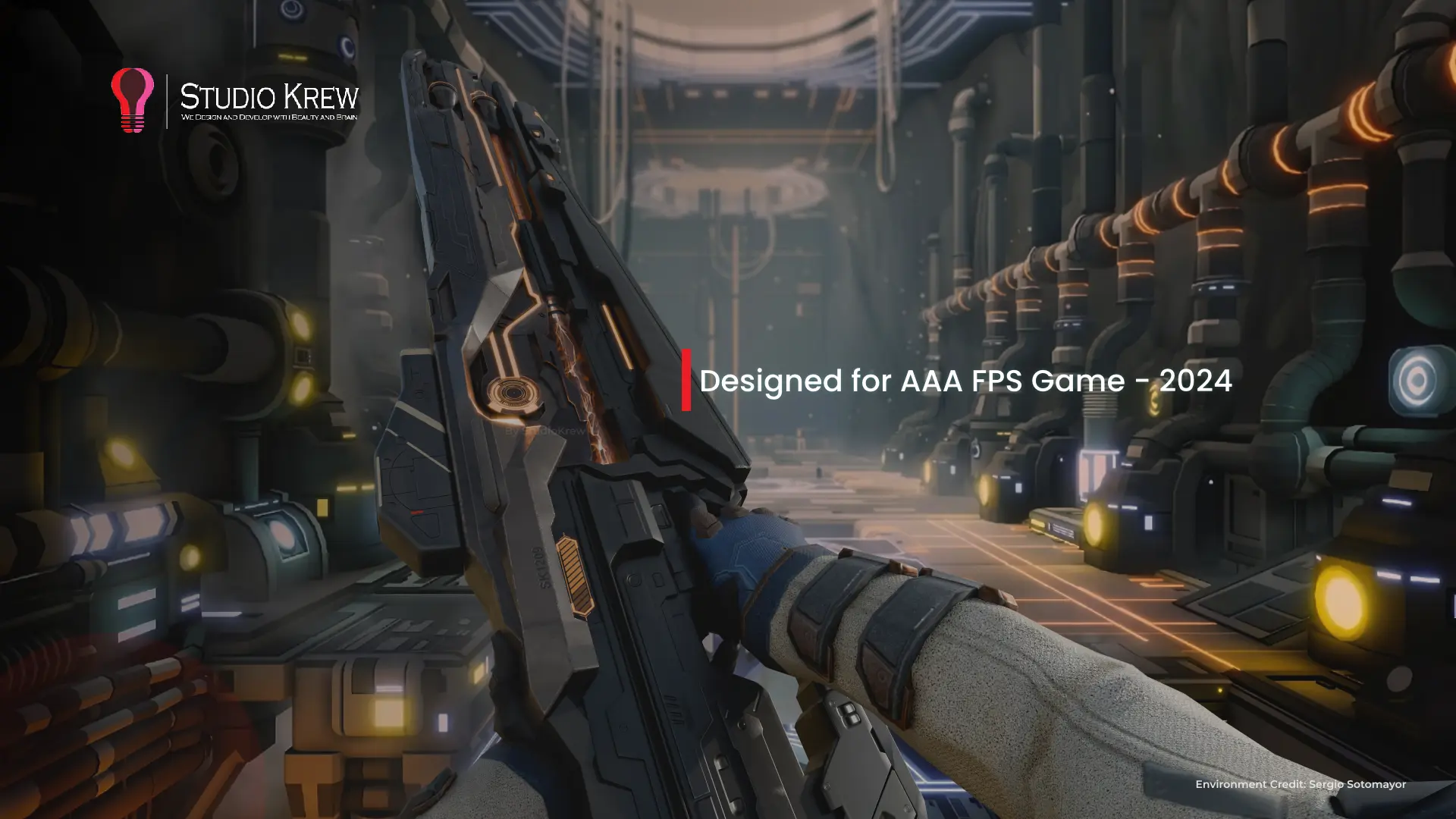Introduction: The Rise of Mobile Game Development in the USA
Flappy Bird, released by an American indie studio a decade ago, demonstrated the rapid global impact a simple mobile game can achieve. By 2025, the United States is poised to be a leader in mobile gaming, having produced landmark titles such as Pokémon Go, which advanced AR gameplay, and Among Us, a cultural touchstone during the pandemic.
The US mobile gaming market exceeds $30 billion annually, underscoring its significant impact on the economy. With over 200 million active players, American studios not only follow trends but also set them, driving innovation in scalable multiplayer worlds, narrative-driven RPGs, and AI-powered personalization. Consistently setting the global standard, US companies are at the forefront of the industry’s evolution.
This dynamic ecosystem offers significant opportunities for startups and enterprises. Success depends on selecting a development partner who delivers beyond technical skills. Leading mobile game development companies offer comprehensive value, encompassing engaging design, sustainable monetization, and global market positioning. StudioKrew’s experience demonstrates how the right partnership can turn a promising idea into a top-performing game.
This article highlights the leading USA-based mobile game development companies for 2025, explores the trends shaping their success, and provides strategic insights for global businesses. Whether you are seeking a development partner or aiming to gain a deeper understanding of the industry, this guide will help clarify your next steps.
Why Mobile Game Development in the USA Is Thriving
Over the past decade, the USA has proven itself as a creative powerhouse in mobile gaming, not just a consumer. One significant anecdote that illustrates this leadership is the story of Pokémon Go’s launch weekend in 2016. The game generated a staggering $5 million in revenue in just the first weekend, captivating millions of players and transforming city landscapes into lively social hubs. Such impactful stories highlight why the US remains a prime destination for mobile game innovation. In 2025, multiple factors will continue to reinforce this leadership.
The US boasts a large and diverse audience, with over 200 million mobile gamers spanning all age groups. Seventy-two percent of Americans play games on their smartphones weekly, making mobile gaming the nation’s leading form of interactive entertainment.
Second, the US enjoys a deep culture of innovation and investment. Venture capital firms and tech giants have poured billions into the gaming sector, funding everything from indie studios to large-scale AAA mobile game projects. This constant flow of capital allows companies to take creative risks—whether it’s experimenting with hybrid-casual mechanics, building esports-ready mobile titles, or launching global franchises straight from mobile.
Third, the integration of gaming into mainstream culture has elevated the entire industry. Mobile games aren’t just entertainment anymore—they’re part of how people socialize, compete, and even learn. Titles like Pokémon Go transformed cities into playgrounds, while Clash Royale and PUBG Mobile made competitive gaming accessible to millions. In fact, the US now hosts some of the biggest mobile esports tournaments, drawing both local and international players.
Finally, the USA’s strong tech ecosystem—spanning Silicon Valley startups, global publishers, and a thriving indie community—creates the perfect storm for growth. Unlike many regions, the US has a blend of established giants (EA, Zynga, Epic Games) and nimble newcomers that push boundaries and set global trends.
In summary, the USA’s dominance in global mobile gaming is driven by its large audience, significant investment, unique culture, and advanced technology. For businesses, success depends on positioning game ideas within this lucrative market and selecting the right development partner.
Key Criteria for Choosing the Best Mobile Game Development Company
With numerous mobile game development companies in the USA, selecting the right partner can be a challenging task. Some excel at prototyping but lack scalability, while others are technically strong but less creative. To avoid costly errors, businesses should assess potential partners using these key criteria:
1. Secure Your Future with Proven Portfolios:
A studio’s portfolio is more revealing than a presentation. Seeking companies that have successfully delivered both indie and AAA titles can give you confidence. For example, Zynga evolved from a startup to an industry leader with games like FarmVille and Words With Friends, proving expertise in game development, player engagement, monetization, and market trends.
2. Achieve Superior Game Performance with Leading Engines:
Modern mobile games thrive on advanced engines like Unity, Unreal, and Godot. Top developers leverage AI tools, cloud services, and analytics for scalability and retention optimization, selecting the most suitable technology stack for each project’s specific needs.
3. Enhance Player Engagement Through Exceptional UX/UI:
Visual appeal is just part of the success story. Developers focusing on onboarding, progression, and reward systems use data-driven decisions and A/B testing. Studios like Jam City excel at transforming simple mechanics into highly profitable games, ensuring player retention.
4. Gain an Edge with Innovative Partnerships:
Game development is collaborative. Leading companies contribute creative ideas, foresee trends, and offer monetization strategies. For example, Niantic redefined player interaction with AR. Your partner should provide insights that elevate your game above that of your competitors.
5. Ensure Long-Term Success with Post-Launch Support:
Launching a game is just the beginning. Ongoing success requires robust Game LiveOps, efficient bug fixes, regular updates, and performance optimization. A dedicated partner ensures stability, scalability, and long-term player satisfaction.
6. Foster Smooth Development with Clear Communication:
Game development is lengthy. Studios offering clear roadmaps, milestone updates, and transparent reporting contribute to smoother collaboration. Partners who value collaborative communication help maintain aligned expectations, preventing project setbacks.
7. Protect Your Investment with Strong IP Rights:
Ownership of IP, source code, and creative assets is crucial for safeguarding your future. Leading companies offer post-launch warranty periods for bug fixes at no extra cost, demonstrating accountability.
8. Achieve Project Clarity with Defined Milestones:
Effective studios divide projects into clear milestones with defined deliverables and acceptance criteria, ensuring accountability and timely delivery. Contracts should specify scope, timelines, costs, and IP rights, reflecting reliable partnerships.
9. Maximize Value by Balancing Cost and Quality:
While cost is important, the lowest price seldom guarantees the best outcome. Investing in expertise, creativity, and long-term support often results in greater long-term savings and success.
By considering these factors, businesses can secure a strategic partner that drives sustainable growth, scalability, and the creation of globally competitive games that deliver measurable value.
Top Mobile Game Development Companies in the USA (2025 List)
The USA is home to some of the world’s most influential mobile game development companies. These studios have shaped the way millions of players interact with games daily, from casual puzzles to esports-ready multiplayer titles. Below is a curated list of the top mobile game development companies in the USA for 2025, each with its unique strengths and innovations.
1. Zynga
- Founded: 2007
- Headquarters: San Mateo, California
- Known For: FarmVille, Words With Friends, CSR Racing 2
Zynga is a leader in mobile gaming, excelling in casual and social apps such as FarmVille and Words With Friends. The studio now also focuses on real-time multiplayer and competitive titles. Its proven expertise in scaling games to millions of users makes Zynga a first-choice partner for innovation and reach. However, when considering comprehensive game development services, StudioKrew offers distinctive advantages. They combine innovative design with flexible technology integration, making them ideal for businesses seeking a customized, scalable development partner.
2. Niantic
- Founded: 2010
- Headquarters: San Francisco, California
- Known For: Pokémon Go, Pikmin Bloom, Monster Hunter Now
Niantic is a pioneer in augmented reality (AR) mobile gaming, having transformed real-world locations into interactive gaming playgrounds. Pokémon Go alone generated billions in revenue and became a global cultural phenomenon. In 2025, Niantic continues to push the boundaries of AR with location-based mechanics, a strong community-building approach, and partnerships with global IP brands.

3. Scopely
- Founded: 2011
- Headquarters: Culver City, California
- Known For: Star Trek Fleet Command, Stumble Guys, Marvel Strike Force
Scopely has carved its niche as a mobile-first powerhouse, combining iconic licensed IPs with innovative game design. The studio excels at building long-term engagement loops and monetization strategies, making its titles favorites among both casual and mid-core gamers. With a presence in multiple genres, Scopely continues to expand its global footprint.
4. Epic Games (Mobile Division)
- Founded: 1991 (Mobile division grew post-Fortnite)
- Headquarters: Cary, North Carolina
- Known For: Fortnite (Mobile), Unreal Engine support for mobile titles
While Epic is best known for Fortnite and Unreal Engine, its mobile division deserves equal attention. Epic has brought console-quality experiences to smartphones, demonstrating what’s possible with powerful engines. Beyond developing games, Epic empowers thousands of developers worldwide through Unreal Engine mobile capabilities, making it one of the most influential forces in mobile gaming.
5. Electronic Arts (EA Mobile)
- Founded: 1982 (Mobile arm established in the 2000s)
- Headquarters: Redwood City, California
- Known For: FIFA Mobile, The Sims Mobile, Need for Speed: No Limits
EA Mobile continues to dominate the sports and simulation genres, delivering blockbuster titles on smartphones. By leveraging its AAA franchises and blending them with optimized mobile mechanics, EA has consistently attracted massive user bases. The company’s expertise in LiveOps and seasonal updates makes it a benchmark for long-term player retention.

6. Kabam
- Founded: 2006
- Headquarters: Vancouver (with strong US presence in San Francisco)
- Known For: Marvel Contest of Champions, Transformers: Forged to Fight
Kabam specializes in licensed mobile games, excelling in creating polished, action-packed titles. Its strong partnerships with Marvel and Hasbro demonstrate its ability to handle global IPs while delivering engaging combat mechanics. Kabam’s games are also renowned for their high production values and loyal player communities.
7. Jam City
- Founded: 2010
- Headquarters: Los Angeles, California
- Known For: Cookie Jam, Harry Potter: Hogwarts Mystery, Disney Emoji Blitz
Jam City has become a leader in puzzle and narrative-driven games. Its ability to balance storytelling with casual mechanics has set it apart. The studio has built long-term revenue streams through franchise partnerships and a steady release of engaging casual titles. For brands seeking to enhance player engagement and retention, Jam City sets a high standard.
8. Pocket Gems
- Founded: 2009
- Headquarters: San Francisco, California
- Known For: Episode, War Dragons
Pocket Gems stands out with its focus on interactive storytelling and community-driven gameplay. Episode has allowed millions of players to co-create and live out stories on mobile, while War Dragons showcases the company’s strength in strategy-based gameplay. Their emphasis on player creativity and content-driven ecosystems keeps them ahead of the curve.
9. StudioKrew (Global Mobile Game Development Company)
- Founded: 2013
- Headquarters: Chicago, IL (Headquarters in New Delhi, India, & serving the USA, UK, UAE, Europe)
- Known For: Taubola Bingo, GoldeFy, 8-Ball Pool Multiplayer, Finance Gamification Games
While not originally based in the US, StudioKrew has established a strong presence in the USA by partnering with startups, enterprises, and gaming studios looking to enter the mobile market. The company offers expertise in multiplayer game development, AR/VR integration, real-money casino games, and gamified learning platforms.

StudioKrew is recognized for delivering end-to-end services—from game design and prototyping to LiveOps and scaling. Their flexibility in working with Unity, Unreal, and emerging AI-driven frameworks has made them a go-to partner for businesses looking to compete in the highly competitive US market.

For companies seeking a global development partner with proven success in the USA, StudioKrew provides the blend of creativity, technology, and post-launch support that helps games reach both domestic and international audiences.
10. Indie Innovators to Watch in 2025
While the spotlight often shines on giants like Zynga, EA, and Niantic, the indie game development community in the USA continues to be a driving force of creativity. Many of today’s breakthrough titles originated in small studios, where a handful of passionate developers created games that later went on to scale to millions of downloads.
What sets indie game developers apart is their willingness to experiment—from bold art styles and narrative-driven storytelling to unique monetization models that larger publishers often avoid. These indie game development studios are reshaping how players experience games, proving that size doesn’t limit innovation.
Some of the most promising indie game development companies in 2025 are focusing on:
- Hyper-casual experiences with viral potential.
- Narrative-driven mobile RPGs appeal to niche communities.
- Socially driven indie game studios building multiplayer-first ecosystems.
- Cross-platform indie game companies that bridge PC, mobile, and console seamlessly.
For startups or businesses seeking collaboration, partnering with an indie game studio can offer a faster and more flexible path to market compared to larger publishers. And with the right partner, even a small team can scale into a global hit.
If you’re considering building your own game with an indie spirit, you can explore StudioKrew’s services:
- Game Studio – End-to-end game design and production.
- Game Development – Custom solutions across genres and platforms.
- Mobile Game Development Company – Expertise in multiplayer, hyper-casual, and real-money mobile games.
- Game Development Company in Chicago – Regional support for US clients.
- Mobile Game Development Company in the USA – Full-service mobile game development for startups and enterprises.
These will provide businesses with the right entry points to connect with indie game development companies and established studios alike—bridging the gap between creativity, scalability, and global reach.
This list showcases the diversity and competitiveness of the US mobile gaming ecosystem—from giants like EA and Zynga to innovative mid-tier companies and international partners, such as StudioKrew. Together, they set the tone for where mobile gaming is headed in 2025 and beyond.
Emerging Trends in Mobile Game Development (USA 2025)
The mobile gaming ecosystem in the USA has always been a trendsetter. What happens here often defines global gaming standards. In 2025, the industry is undergoing exciting shifts across genres, technologies, and player expectations. Below are the emerging trends in mobile game development that businesses, startups, and developers should closely watch.
1. The Rise of Real-Money Mobile Games
Real-money and social casino game development are no longer niche—they’re mainstream. Players are increasingly drawn to mobile platforms that offer not just entertainment but also tangible rewards. Titles such as online bingo, poker, and slot games are topping the charts in multiple US states where regulations permit.
This growth is backed by numbers: the global real-money mobile gaming market is expected to surpass $100 billion by 2028, with the USA set to be a major contributor. What makes this trend powerful is its blend of excitement, social competition, and financial incentive. Developers are also exploring hybrid models that allow virtual currencies to be converted into small real-world rewards, thereby widening the appeal beyond traditional casino players.
For businesses, investing in real-money mobile game development in the USA offers access to a rapidly growing audience. The key is ensuring compliance with state and federal regulations while providing secure Random Number Generator (RNG) systems and effective fraud prevention mechanisms.
2. AI-Driven Personalization & Smart NPCs
Artificial Intelligence is becoming a cornerstone of mobile game development, particularly with AI-integrated game development. In 2025, AI is not just a back-end tool—it actively shapes the player experience.
- Adaptive Difficulty: Games now utilize AI to measure player skill in real-time, dynamically adjusting challenges to keep players engaged without frustrating them.
- Smart NPCs: Instead of predictable behavior, modern AI NPCs act with human-like decision-making, creating a sense of unpredictability and realism.
- Personalization: AI engines analyze gameplay data to deliver personalized rewards, storylines, or challenges—making each player’s journey unique.
For example, battle royale games now use AI to balance matchmaking and ensure fair competition, while puzzle games personalize hint systems based on user progress. But how does the unpredictable nature of player behavior shape these AI-driven systems? Could the uncertainty in player choices be transformed into an opportunity to innovate and adapt game design? This kind of dynamic adaptation ensures higher retention rates and player satisfaction.
3. Hybrid-Casual Games Taking Over
The hyper-casual craze that defined 2018–2022 has evolved. Players still love easy-to-pick-up mechanics, but they now demand depth and replayability. Enter hybrid-casual game development, the perfect blend of hyper-casual simplicity and mid-core engagement.
Hybrid casuals typically include:
- Simple one-touch mechanics.
- Meta-progression systems (like leveling, upgrading, or collecting).
- Seasonal events or LiveOps to keep players engaged.
- Monetization through both ads and in-app purchases.
For example, Challenge Master 2 Player Offline Game and Ladder Dash are two recent game examples that combine the simplicity of hyper-casual controllers with RPG-style progression, making it addictive for both short bursts and long-term sessions. The USA is a leader in this space, with studios experimenting across genres to maximize both reach and lifetime value (LTV).
4. Cross-Platform & Cloud Gaming Expansion
Today’s players don’t want limits. They expect to start a game on mobile during a commute, continue on PC at home, and maybe even play on console with friends. Cross-platform game development is meeting this demand.
- Games like Fortnite and Call of Duty: Mobile are proving that seamless cross-device play is no longer optional—it’s expected.
- Cloud gaming services, such as Xbox Cloud Gaming and Nvidia GeForce Now, are removing hardware barriers, enabling AAA-quality games to run on mobile devices without requiring heavy downloads.
For developers, this trend demands synchronization, scalable servers, and UI adaptability. Studios that design with cross-platform integration from the start are seeing stronger adoption rates and broader audiences.
5. Blockchain-Lite & Digital Ownership
The NFT boom of 2021 may have cooled, but its underlying idea—digital ownership—is thriving in a refined form. Instead of speculative tokens, studios are integrating blockchain-lite features into mobile games:
- Collectible skins and avatars with limited editions.
- Reward tokens that can be traded within a closed ecosystem.
- Secure in-game economies with transparent ownership.
By focusing on utility and fun first, rather than speculation, developers are regaining player trust. In the USA, these systems are particularly appealing for simulation, role-playing, and competitive games, where digital assets hold long-term value.
6. Growth of Mobile Esports in the USA
The esports scene is no longer dominated by PC and console—mobile esports is booming. Titles like PUBG Mobile, Clash Royale, and Call of Duty: Mobile have built massive followings.
- In 2025, the US is expected to host over 40 mobile esports tournaments, with prize pools collectively surpassing $50 million.
- Streaming platforms like Twitch and YouTube Gaming are heavily investing in mobile esports content.
For developers, this trend means designing games with spectator modes, balanced competitive mechanics, and scalable multiplayer. Studios that create esports-ready games open the door to sponsorships, global tournaments, and viral community growth.
7. AR & Location-Based Mobile Experiences
While AR has been around for years, 2025 is seeing the development of lighter, faster, and more socially engaging AR mobile games. Thanks to more powerful devices and better software frameworks, AR is no longer a battery-draining gimmick—it’s becoming practical.
- Niantic’s Pokémon Go continues to inspire competitors, but newer titles are blending AR with social storytelling, education, and fitness.
- Indie developers in the USA are exploring AR for classroom learning, tourism, and team-based challenges.
This evolution points to a future where AR isn’t a feature—it’s an expectation for interactive, location-based mobile experiences.
8. Education Game Development & Kids Games
Learning through play has gained serious momentum. Educational game development is thriving in the USA, with edtech companies gamifying everything from math to coding. These games transform lessons into challenges, rewards, and progression systems, making education more engaging and effective.
Meanwhile, kids’ game development is seeing innovation that blends digital fun with physical activity. A prime example is Party Blaster, a game where kids move physically in front of the TV while casting the game from their mobile device. It’s a mix of fitness, fun, and social play—a direction many parents prefer in 2025 as it reduces sedentary screen time.
Together, these genres highlight how gaming is becoming a tool for both entertainment and personal game development.
9. Simulation Games for Mobile
Simulation games are experiencing a surge in popularity. Players love games that let them manage, build, and create.
- Farming simulators appeal to casual players seeking a relaxing experience.
- Business and management sims attract strategy-minded audiences.
- Lifestyle and life-simulation games (The Sims Mobile, for example) give players creative control over virtual worlds.
These games stand out for their long-term progression systems and monetization opportunities. In the US, they’re often tied to cultural themes—such as city-building games inspired by real cities or business simulations modeled after American entrepreneurship.
10. Mobile Games & the Metaverse
The metaverse may still be in its infancy, but mobile is one of its most important entry points. In 2025, US developers are building metaverse-ready mobile platforms where players can:
- Create avatars and socialize in persistent worlds.
- Attend concerts, events, and meet-ups virtually.
- Trade and own digital assets securely.
While VR headsets are still niche, the mobile metaverse is more accessible, especially for younger audiences. Companies like Meta are investing heavily, but startups and mobile game studios are the real innovators here—building scalable, immersive experiences for mobile-first players.
Together, these 10 trends paint a clear picture: the future of mobile gaming in the USA is diverse, innovative, and highly player-focused. From real-money games to kids’ educational apps, from AI-driven personalization to the metaverse, the opportunities for businesses are limitless—provided they partner with developers who understand these shifts.
Challenges Developers Face in 2025 (and How Top Studios Solve Them)
The US mobile gaming market is thriving, but it isn’t without hurdles. From skyrocketing user acquisition costs to tightening regulations, developers face a series of challenges that can make or break a game. Here are the biggest challenges in 2025—and how leading studios are finding solutions.
1. Rising User Acquisition Costs
The Challenge: With millions of apps competing for attention, acquiring new players has become expensive. In 2025, the average cost per install (CPI) in the US has climbed to nearly $2.50, and that’s just to get a download—not long-term engagement.
The Solution: Top studios are shifting their focus from paid acquisition to organic growth. They invest in:
- Strong social communities (Discord, Reddit, TikTok).
- Referral and friend-invite systems within the game.
- Optimized App Store Optimization (ASO) for higher visibility.
For example, Among Us gained massive traction through organic word-of-mouth, not advertising. Studios that design games with shareable, viral hooks can significantly reduce acquisition costs.
2. Balancing Monetization with Player Experience
The Challenge: Players are increasingly wary of aggressive ads and pay-to-win mechanics. Bad monetization models often lead to negative reviews, poor retention, and early churn.
The Solution: Leading developers use hybrid monetization strategies—a balanced mix of in-app purchases, rewarded ads, and battle passes. They also utilize data analytics to determine when and where players are most receptive to monetization prompts. Jam City, for instance, carefully integrates ads into gameplay loops without disrupting immersion.
The rule of thumb is that monetization should enhance, not interrupt, the player experience.
3. Regulatory Hurdles & Data Privacy
The Challenge: From the Children’s Online Privacy Protection Act (COPPA) to state-level real-money gaming laws, regulations are more complex than ever in the US. Non-compliance can result in game takedowns or substantial fines.
The Solution: The best studios collaborate with legal consultants and compliance experts from the outset. They also design modular systems that can toggle features (like in-app purchases or chat systems) based on local regulations.
For kids and educational games, studios integrate COPPA-compliant data handling and parental control dashboards. This allows them to innovate while staying within the law.
4. Global Competition & Talent Shortage
The Challenge: US studios face intense competition from Asia and Europe, where development costs are lower and markets are just as hungry. Additionally, there’s a talent crunch—finding skilled Unity, Unreal, and AI developers in the US is expensive.
The Solution: Many US-based companies are co-developing with global partners. By collaborating with studios like StudioKrew, businesses access highly skilled teams at competitive costs. This hybrid model combines local market expertise with global production capacity, ensuring speed without sacrificing quality.
5. Player Retention & Engagement
The Challenge: Even after successful launches, many mobile games lose up to 70% of their players within the first week. Retention is one of the hardest problems to solve in 2025.
The Solution: Top studios are doubling down on LiveOps and community building. They introduce:
- Seasonal events and limited-time challenges.
- Daily rewards and streak bonuses.
- Social features like guilds, leaderboards, and chat.
Scopely’s Star Trek Fleet Command is a perfect example, retaining players through continuous story updates and community-driven events.
6. Technical Scaling & Performance
The Challenge: Mobile games frequently require handling sudden spikes in traffic. A game that goes viral can crash servers if not designed for scale. Performance issues—like lag, crashes, or slow loading times—quickly drive players away.
The Solution: Leading studios adopt cloud-native architectures with scalable backends. They use technologies like Photon Fusion for real-time multiplayer and CDN optimization for asset delivery. Regular stress testing ensures the game remains stable, even under heavy loads.
7. Standing Out in a Crowded Market
The Challenge: With over 500,000 mobile games available in app stores, discoverability is one of the biggest obstacles in 2025. Even well-designed games can disappear into obscurity without visibility.
The Solution: Top companies are combining App Store Optimization (ASO) with content marketing, influencer partnerships, and cross-platform promotion. Niantic, for instance, created real-world community events to market Pokémon Go, blending offline engagement with online visibility. Smaller studios replicate this by targeting niche communities rather than broad audiences.
8. Shifting Player Expectations
The Challenge: Players today want more than just fun—they want value, social connection, and even personal development from games. This shift puts pressure on developers to constantly innovate.
The Solution: Studios are expanding into education games, kids’ fitness apps, simulations, and metaverse experiences. By diversifying beyond entertainment, they capture new demographics. For example, StudioKrew’s Party Blaster blends physical activity with mobile gaming, creating a healthier play pattern for kids.
Bottom Line:
Every challenge in 2025 is also an opportunity. Studios that adapt with innovation, compliance, smart monetization, and global partnerships are thriving despite the hurdles. For businesses, the key is choosing a partner that can anticipate these challenges and already has proven solutions in place.
How StudioKrew Helps Global Clients Compete in the USA Market
Breaking into the US mobile gaming market is no small feat. With some of the world’s most competitive studios headquartered here, startups and enterprises need more than just a development team—they need a partner who understands both global gaming trends and local market expectations. This is where StudioKrew steps in.
1. A Global Studio with USA Market Expertise
Founded in 2013, StudioKrew has grown into a leading mobile game development company serving clients in the USA, UK, UAE, and Europe. While headquartered in India, the studio has established strong collaborations with American startups, enterprises, and independent innovators, helping them design, build, and scale games for US audiences.
With a deep understanding of US player preferences—from casual gamers and esports enthusiasts to educational and kids’ gaming—StudioKrew delivers games that resonate with diverse demographics.
2. Proven Success Stories for the US Market
StudioKrew’s portfolio encompasses a diverse range of projects that showcase its adaptability and effectiveness.
- Taubola Bingo – A large-scale real-money multiplayer bingo game built to support over 1,000 players in real time, powered by Unity and a custom RNG algorithm. It experienced a 200% increase in downloads within the first three months after launch, alongside a 50% boost in player retention, thanks to StudioKrew’s strategic development and marketing campaigns. The project’s enhanced performance led to a significant uptick in revenue, making it a top player in the real-money gaming space.
- 8-Ball Pool Multiplayer (Unity + Photon Fusion) – A skill-based mobile and web-ready pool game with smooth offline and online modes, designed to engage both casual and competitive players.
- Party Blaster (Kids’ AR/VR Game) – A motion-based kids’ game where children move in front of their TV while casting gameplay from their phones. This project showcases StudioKrew’s expertise in educational games and physical interaction mechanics.
- Finance Gamification Game – Inspired by The Game of Life, this mobile-first project gamifies financial education for employees of a leading Indian financial company, showcasing StudioKrew’s ability to deliver learning and simulation games with a measurable impact.
Each of these projects showcases the studio’s ability to integrate game design, cutting-edge technology, and business objectives into a polished final product.
3. End-to-End Game Development Services
StudioKrew offers a complete spectrum of services tailored for the USA mobile gaming industry:
- Multiplayer Game Development – Real-time and turn-based gameplay powered by Unity, Unreal, and Photon.
- Casino & Real-Money Game Development – Compliant, secure, and scalable bingo, poker, slots, and fantasy games.
- Kids’ and Educational Game Development – Engaging games that blend learning with fun, including AR/VR and physical-activity mechanics.
- AR/VR Mobile Games – Immersive and interactive games that push the boundaries of reality.
- Simulation & Strategy Games – Business sims, lifestyle simulators, and city-building titles for long-term engagement.
- Metaverse-Ready Game Development – Cross-platform ecosystems designed for social, creative, and virtual experiences.
Whether clients need a prototype, MVP, or full-scale launch, StudioKrew provides both the creative design and the technical muscle to bring ideas to life.
4. Why Global Companies Choose StudioKrew for the USA Market
- Scalability: Expertise in handling projects that grow from thousands to millions of players.
- Technology Stack: Unity, Unreal Engine, Godot, Photon Fusion/Quantum, AWS, AI frameworks.
- Cost-Effective Quality: Access to highly skilled developers at competitive rates compared to in-house US teams.
- Post-Launch Support: LiveOps, updates, seasonal content, and analytics-driven improvements.
- Ownership & Transparency: Clear contracts, warranty periods, and guaranteed IP ownership.
For businesses seeking a mobile game development company in the USA that can strike a balance between creativity, compliance, and scalability, StudioKrew offers the perfect blend of innovation, execution, and global reach.

Explore more about our services here:
Conclusion: The Future of Mobile Gaming in the USA
The USA has long been the heartbeat of mobile gaming, and 2025 is proving to be one of its most transformative years yet. From the explosive rise of real-money mobile games and hybrid casual titles to innovations in AI-driven personalization, educational games, and metaverse-ready platforms, the landscape is richer and more diverse than ever.
Looking ahead, we can expect the lines between entertainment, learning, and social interaction to continue to blur. Mobile games won’t just be pastimes; they’ll be classrooms, social hubs, and even workplaces—bridging virtual and real-life experiences. With mobile esports attracting millions of viewers, educational games reshaping classrooms, and AR titles transforming everyday spaces into interactive playgrounds, the USA is poised to remain a global leader in shaping the future of mobile gaming.
But opportunities don’t come without challenges. Developers face rising player acquisition costs, regulatory pressures, and global competition. Success in this highly competitive market depends on choosing the right partner—one that not only understands the technology but also anticipates trends, solves challenges, and delivers games that resonate with players.
This is where StudioKrew stands out. With proven expertise in multiplayer game development, casino and real-money platforms, kids’ and educational games, simulation titles, AR/VR experiences, and metaverse ecosystems, StudioKrew has helped startups and enterprises alike launch and scale games that thrive in the US market. Whether it’s building a high-performance esports title, a learning-focused kids’ game like Party Blaster, or a real-money bingo platform like Taubola, StudioKrew brings creativity, technical depth, and market insight to every project.
For businesses and entrepreneurs seeking to capitalize on the future of mobile gaming in the USA, now is the time. Partnering with the right game studio could be the difference between being another app in the store or becoming the next cultural phenomenon. Which of these trends will your next game ride? Seize the opportunity to align with the future of the industry and make a lasting impact.
Ready to bring your gaming idea to life? Connect with StudioKrew and let’s build the next generation of mobile games for the USA and beyond.
FAQ: Mobile Game Development Companies in the USA (2025)
Q1. What are the top mobile game development companies in the USA in 2025?
Some of the leading names include Zynga, Niantic, Scopely, Epic Games (Mobile), EA Mobile, Kabam, Jam City, Pocket Gems, and international partners like StudioKrew, which actively collaborates with US startups and enterprises.
Q2. How much does it cost to develop a mobile game in the USA?
The cost depends on complexity, features, and design requirements. On average
- Casual/Hyper-Casual Games: $30,000 – $80,000
- Mid-Core or Multiplayer Games: $100,000 – $250,000
- AAA-Level Mobile Games with AR/VR: $300,000+
Many businesses reduce costs by partnering with global game development studios that have US expertise.
Q3. Which companies specialize in AR/VR mobile game development in the USA?
Niantic is a pioneer in AR gaming (Pokémon Go), while companies like Epic Games and Smaller indie AR studios are pushing VR/AR integration forward. International studios, such as StudioKrew, also provide AR/VR mobile game development services for the US market.
Q4. Who are the leading indie mobile game developers in the USA?
The USA is home to several indie game studios known for creativity and niche innovation. In 2025, popular indie players are producing hybrid casual games, narrative-driven RPGs, and experimental AR/educational games. Businesses often collaborate with indie game development companies to bring unique ideas to life.
Q5. How do I choose the right mobile game development company in the USA?
Look for:
- A proven portfolio of successful titles.
- Expertise in engines and technology (Unity, Unreal, AI, AR/VR).
- Transparent contracts covering ownership, warranty, and deliverables.
- Strong post-launch support (LiveOps, updates, analytics).
- The ability to balance cost, quality, and scalability.
👉 Partnering with an experienced company like StudioKrew gives businesses a competitive edge in the US market.





